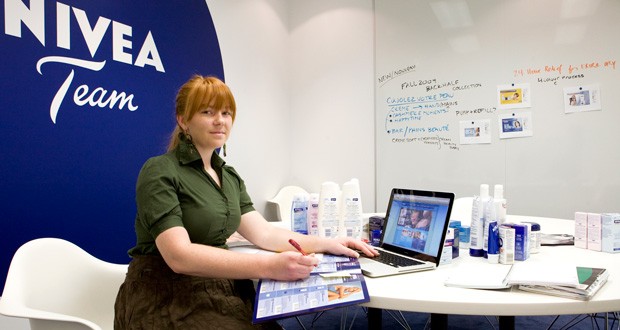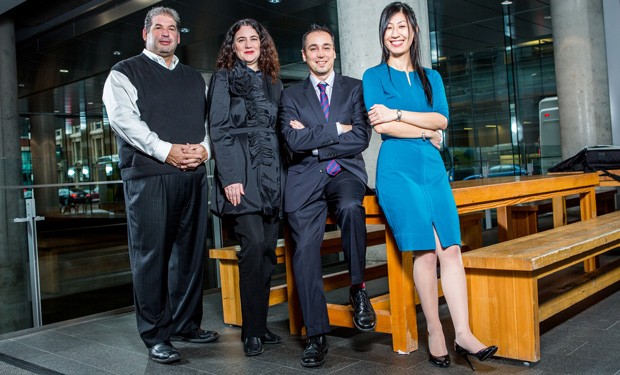How to hire a student
Gerry Hughes has seen Concordia’s recruitment cycle from two distinct perspectives. As a regional manager at the Royal Bank of Canada, he hired MBA students directly from the university. Then, in 2007, he became the director of Career Management Services (CMS) at the John Molson School of Business (JMSB), a career move that led to his current role as director of the university’s Institute for Co-operative Education (Co-op).
“I’m impressed by the amazing quality and commitment of our students,” Hughes says.
And he’s impressed by everything the university has done to help those students find employment.
Hughes’ confidence in Concordia’s career centres, which also include Career and Placement Services (CAPS), stems from their track record. CAPS holds popular engineering career fairs each year, attended by an average of 1,500 students eager to make invaluable connections with the 41 organizations in attendance. Co-op arranges for approximately 1,000 paid work terms each year, and many of these students get hired full-time after graduation. CMS boasts impressive hiring rates for recent graduates: 73 per cent of undergraduates are hired within three months of graduation, and 86 per cent of graduate students.
The challenge is to connect the right employers and students. Fortunately, Concordia’s three career centres make this easy.
CAPS, a division of Counselling and Development, works primarily with the faculties of Engineering and Computer Science, Arts and Science, and Fine Arts. It coordinates on-campus recruitment for full- and part-time positions, summer jobs and non-Co-op internships. In most cases, there is no charge for clients to post jobs for current students and recent alumni throughout the year.
Clients are unfailingly impressed by the prospects the service yields. “We receive consistent positive feedback from employers about the high quality of Concordia student applicants,” says Susanne Thorup, manager at CAPS. “I think they stand out because we have strong students, and many of them take advantage of workshops and advising offered by Counselling and Development.”
CMS operates independently within JMSB. Like CAPS, it offers on-campus recruitment initiatives and welcomes employers to the information sessions, career fairs and other promotional activities it hosts for students.
According to its director, Mai-Gee Hum, CMS gives students the boost they need to find jobs. “There’s no doubt the reputation of JMSB brings employers in,” she says. “But it’s our outstanding customer service and the calibre of our graduates that keep bringing them back. Our long-standing recruitment partnerships make us very proud and help our graduates find fulfilling jobs.”
To the same end, CMS lets students and alumni alike access its job-posting site, register for career events, browse online career materials and use advising services. And, for a nominal fee, the office can assist employers in their search for experienced hires, including grads with more than five years in the workforce under their belt.
Co-op, an academic unit that reports to the Office of the Provost, aims to bridge academic life and the world of work. It offers undergraduates the opportunity to take part in 12- to 17-week work terms (or stages) starting in September, January or May. These placements allow students (who can also take advantage of resources offered by CAPS and CMS) to gain a feel for their fields — and earn a little money — while they’re in school. For employers, these programs may also mean a tax credit.
“Co-op’s been around for more than 33 years,” says Hughes, “and I think we’ll be around to serve our student and employer clients for a good long time to come.”
To learn more about what Co-op students are doing, read Fighting crime at Quebec’s foremost forensics lab.



